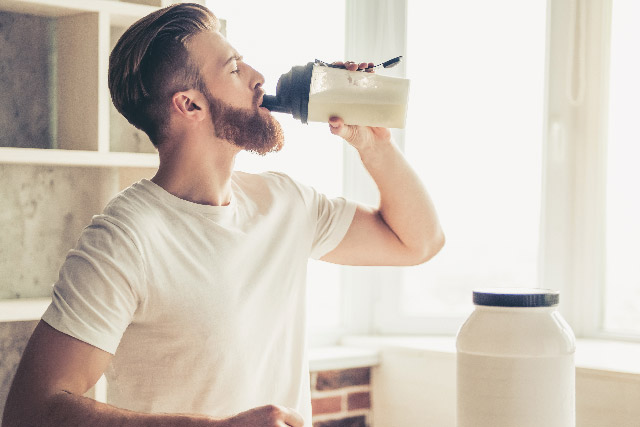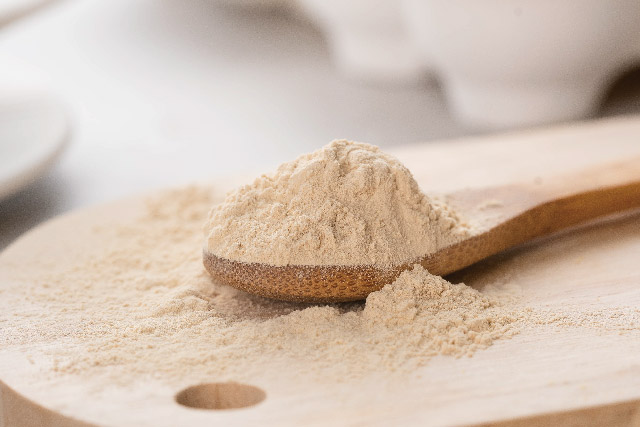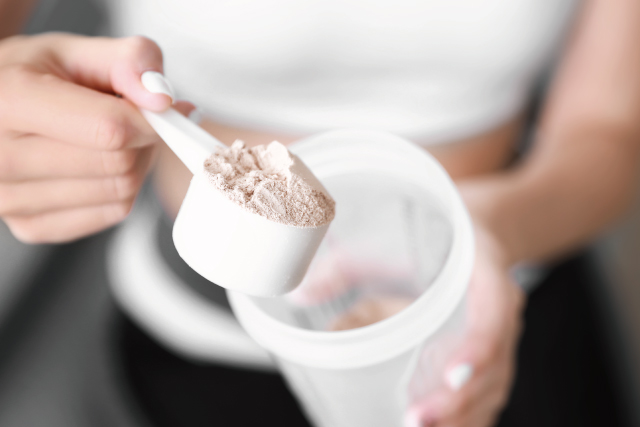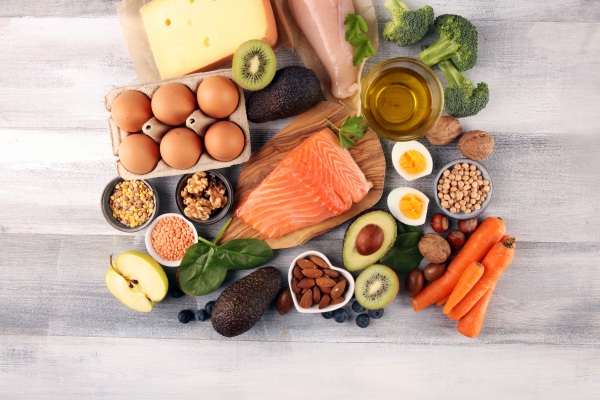According to a 2024 Grand View Research report, the global protein supplement market is projected to reach $32.6 billion by 2025, with plant-based alternatives growing at a 12.4% CAGR.

For many years, whey protein has been in the mainstream for the sports nutrition industry, but now various types of protein sources, be it plant-based like pea, soy, or a blend of both, have emerged. With them, another very good source of protein known as yeast protein has come into the limelight. With its arrival, everyone has the same question, whey vs yeast protein, which one is better.
For athletes and health enthusiasts, the choice between whey and yeast protein extends beyond taste—it’s about optimizing muscle synthesis, recovery speed, and long-term health.
What is Whey Protein?
It is made from milk during cheese-making, when the liquid part (whey) is separated from the curds. By filtering and drying this by-product, a premium protein powder abundant in key amino acids, especially leucine, which is vital for muscle growth and repair, is created.
What makes whey protein stand out is that it’s a complete protein, meaning it contains all nine essential amino acids your body can’t produce on its own. This makes it especially valuable for anyone involved in strength training, endurance sports, or physical recovery.
Whey is available in different forms, each with unique characteristics:
◉ Whey Protein Concentrate (WPC): Usually comprising 70–80% protein by weight, whey protein concentrate (WPC) also has trace levels of lactose and fat. It is the least expensive choice and preserves more of the natural nutrients found in whey.
◉ Whey Protein Isolate (WPI): Contains about 90% protein after undergoing further processing to eliminate the majority of the fat and lactose. Perfect for people who want a lot of protein and little in the way of dairy or carbohydrates.
◉ Whey Protein Hydrolysate (WPH): This is a partially digested type of protein that facilitates quicker absorption and lowers the risk of gastrointestinal distress.
Whey Protein (WP) Type | Protein Concentration |
WP Isolate | 90-95% |
WP Concentrate | 70-80% |
Hydrolysed WP | >95% |
Why People Choose Whey?
◉ Absorbs quickly, ideal for post-workout recovery
◉ High bioavailability and digestibility
◉ Stimulates muscle protein synthesis rapidly
◉ Supports immune function thanks to bioactive peptides
◉ Backed by extensive research and real-world results
Whether you’re using it for muscle gain, recovery, or as a convenient protein supplement, whey remains one of the most trusted and effective protein options on the market.
What is Yeast Protein?

In the nutrition industry, yeast protein is rapidly becoming more well-known, particularly among consumers seeking vegan and eco-friendly substitutes for animal-based proteins. It is made from Saccharomyces cerevisiae, a type of yeast that is frequently used in baking and brewing, and is extracted and fermented under controlled conditions to produce a concentrated protein.
Yeast protein is a complete protein because it naturally includes all nine essential amino acids, unlike many plant proteins that need to be blended to complete their amino acid profile. Because it is usually free of lactose, gluten, and major allergies, it is particularly tempting to people with dietary restrictions.
Key Features of Yeast Protein
◉ Gluten, dairy, and soy-free, vegan, and free of allergies.
◉ It is a complete protein source due to its rich amino acid composition.
◉ Unfiltered fiber content aids in the management of digestive health.
◉ Clean-label products frequently contain yeast protein, which is also increasingly showing up in gluten-free protein bars, powders, and even plant-based meat substitutes.
Yeast protein is often used in clean-label formulations and is gradually becoming more common in vegan protein powders, bars, and even plant-based meats.
Why People Choose Yeast Protein?
✓ Suitable for vegans, vegetarians, and people with food sensitivities
✓ Promotes longer satiety due to slower digestion
✓ Contains natural fibers and beta-glucans that may support gut health
✓ Appeals to environmentally conscious consumers
✓ Free from hormones, antibiotics, and animal by-products
Yeast protein may not have the instant muscle-boosting effect of whey, but its clean profile, sustainability, and versatility make it a rising star for the health-conscious consumer in 2025.
Curious about finding your perfect protein match? Stay tuned for our next blog—we'll break down exactly how to choose the right protein for YOUR goals!
About Angel Yeast
Founded in 1986, Angel Yeast Co., Ltd specializes in the production of yeast and yeast derivatives. Its product range includes baker's yeast and ingredients, Chinese dim sum and seasoning, savory yeast extract, human health, animal nutrition, plant nutrition, distilled spirits and biofuels, microbial nutrition and enzymes. At present, Angel Yeast has 11 international advanced production bases, and provides products and services for more than 150 countries and regions globally.
About Angel Yeast Extract-Savoury
Angel YE (yeast extract) made from edible yeast, by degradation the protein and nucleic acid in the yeast cells into nutritional seasonings with the application of modern biotechnology, has the advantages of increasing the fresh flavor, reducing salt, balancing the odor, strong tolerance and food properties, which promotes the global healthy operation of salt reduction and "clean label ".
Press Contact
ANGEL YEAST CO., LTD
Address: 168 Chengdong Avenue, Yichang, Hubei 443003, P. R. China
Tel: +86-717-6369520, 6369558
Fax: +86-717-6370680
Email: yefood@angelyeast. com




